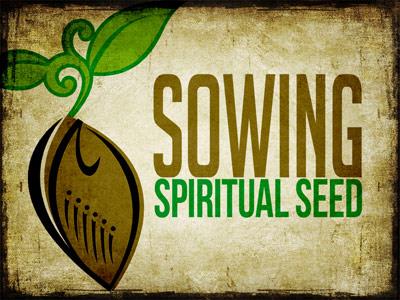-
Pathway Ground Series
Contributed by Jeremy Houck on Nov 28, 2017 (message contributor)
Summary: A look at the Parable of the Sower
I believe that it is the work of the preacher to preach and teach things that will cause us to grow and stretch our belief and faith in God. I hope that in the time that God gives us to work together here in this community that I will be able to do just that. I want to challenge you, teach things that will cause you to study and hopefully grow in your knowledge and loge for God and his church.
But I know that with growth come some growing pains. I have a book in my office that has caused me lots of pain. To be honest I hate to read it and to this day I haven’t read it all. It is a book that was written by a member of the church and the writer asks some questions that I do not like the obvious answers to. So I have gotten upset and thrown it across the room, hid it in a desk drawer and just put it away, but every so often I get it out and read a little more.
Do you know why I do this? Is it because I like pain? Or because I like to torture myself? No the reason is because the story that this writer tells is so captivating that am drawn to read, but when I read I don’t always like the answer that I come up with.
Jesus taught in much the same way. Jesus was a storyteller, and when you get to the heart of what He was saying you don’t always like the answer that you come up with.
Mark 4:33-34 says “And with many such parables He spoke the word to them, as they were able to hear it. But without a parable He did not speak to them. And when they were alone, He explained all things to His disciples”.
Jesus taught the people in parables so that they could chew on it, and often when they had their ah-ha moment it was days later.
The parable of the Good Samaritan battles racial prejudice
The parable of the lost Sheep, Coin, and Boy battles our responsibility to our family
The parable of the wheat and the weeds battles worldliness
And so on.
Tonight I want to look at a Parable found in three of the Gospels. Tonight we will look at Matthew’s account in Matthew 13:1-9
For years I have heard this parable used in sermons and bible classes to teach that we must be the Good soil and provide and increase if we have any hope of heaven. But I am learning that I can better understand the other types of soil at times.
You know the types of soil and what they represent.
The Pathway soil is the mind that is packed down, unreceptive: "I don’t understand; I don’t believe".
This is where I have already formed my opinion about the matter and no amount of scripture is going to change that.
The Rocky soil is the mind that has lack of depth, fast start, withers: "I’ll serve the Lord as long as there are no difficulties or discouragements".
The Thorny soil is the mind that choked out by cares of life, deceitfulness of riches, desires for other things: "I’ll serve the Lord as long as it does not interfere with things that are more important".
The Good soil is the mind that hears the word with a noble and good heart, understands it, accepts it, bears fruit: "I’ll serve the Lord; I’m eager to learn more and better ways to be of service; I want to improve my effectiveness; I volunteer".
But I believe that the four types of soil represent a growth process. And as we receive the word, and continue to stretch and grow we are all at one time or another each of the soils, and hopefully there is a progression?
You see if it is possible that in many areas and at many times I go from wayside to rocky to thorny to good ground, and then there is encouragement to be found in growth.
If I have progressed from pathway to rocky?
If I have grown from rocky to thorny?
If I have begun to see some fruit multiplying where once my life was choked with thorns?
Then I have a reason to rejoice and I realize that I have a choice about what kind of ground I am.
Let me remind you that growth is hard. There are some things in your life and in your belief system hat have been there for a while and have been handed down from generation to generation.
It’s like the little girl who noticed that every time her mother cooked a roast she chopped a piece off the end of the roast before putting it in the oven. Intrigued, she asked her mother why she did this.

 Sermon Central
Sermon Central



